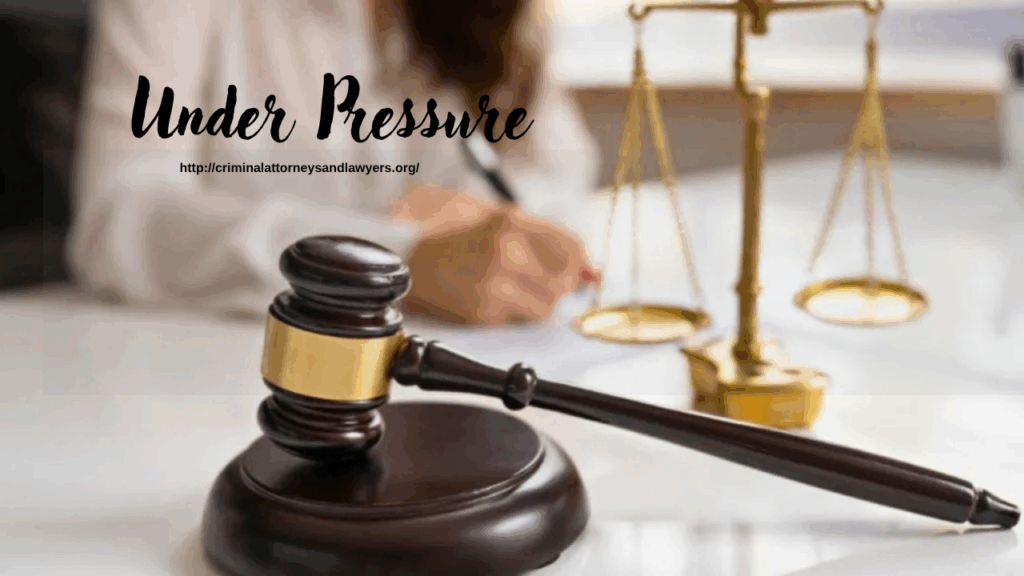
Every attorney carries a commitment not only to their client’s case but also to their client’s well‑being. At CriminalAttorneysAndLawyers.org we understand that addiction often intersects with mental health challenges and legal pressures. Our holistic, faith‑based, and individualized approach supports clients throughout recovery and beyond. This article explores Invisible Load: Emotional Fatigue Beyond Legal Arguments, helping legal professionals and clients alike understand how emotional fatigue develops during complex cases and why compassionate addiction recovery matters.
Understanding Emotional Fatigue in Legal Contexts
Attorneys working with clients facing addiction and co‑occurring mental health issues constantly absorb emotional stress. Over time this can lead to emotional fatigue—a state where compassion and clarity begin to wear thin. This goes beyond burnout. It involves vicarious trauma and compassion fatigue from repeated exposure to trauma, crisis, and high stakes scenarios.
Recognizing this invisible load empowers legal professionals and clients to seek healthier balance through addiction recovery services, mental health treatment, and integrated care that addresses both sides of the coin.
Core Contributors to Emotional Fatigue
1. Client Trauma and Complexity
Clients struggling with addiction often bring histories of trauma, mental illness, or crisis. Attorneys dedicated to their case become witnesses to their pain, creating cognitive and emotional strain that is easy to underestimate.
2. High Workload and Stress
Heavy caseloads, tight deadlines, and court appearances amplify stress. When emotional pressures combine with workload, even the most resilient legal professionals may begin to experience fatigue.
3. Lack of Support or Debriefing
Without structured support or debriefing sessions, attorneys and recovery clients alike may feel isolated. That lack of emotional processing worsens their invisible burden.
How Addiction Recovery Services Help Mitigate Fatigue
At CriminalAttorneysAndLawyers.org we partner with recovery professionals offering inpatient and outpatient care, dual diagnosis treatment, and support for both addiction and mental health challenges.
Whole‑Person, Holistic Care
Our preferred care partners address body, mind, and spirit. Clients engage in mindfulness, spiritual support, nutrition, and recreation therapies. This enriched recovery environment helps repair the emotional toll for both client and legal advocate alike.
Faith‑Based and Individualized Programs
Faith‑based settings can offer grounding, meaning, and community. Individualized retreats allow clients and their legal teams to align recovery plans with personal values and legal needs.
Peer Support and Family Involvement
Group therapy and family sessions are built into treatment. This creates shared emotional space, reducing shame, increasing empathy, and supporting everyone involved—including attorneys who may otherwise absorb unchecked client stress.
Practical Strategies for Managing Emotional Fatigue
Self‑Awareness and Early Recognition
Attorneys should monitor for signs like emotional numbness, intrusive thoughts, exhaustion, or cynicism. Recognizing these early allows timely support or referral to mental health care.
Professional Boundaries and Time Off
Setting boundaries around client exposure, work hours, and case volume helps. Attorneys can benefit from short sabbaticals, peer check‑ins, and clear scheduling to reduce cumulative stress.
Use of Support Tools and Advocacy
Working with recovery professionals encourages a multidisciplinary team approach. It shifts some of the emotional weight onto trained counselors, chaplains, therapists, and case managers.
Continued Learning and Debriefing
Regular training in trauma‑informed law practice, mental health first aid, and compassion fatigue awareness supports resilience. Group debriefing sessions offer emotional processing and self‑care reinforcement.
Why Emotional Fatigue Matters for Client Outcomes
Invisible fatigue affects clarity, empathy, and advocacy. When attorneys experience high emotional load without support, decision‑making and client connection suffer. By reducing invisible load through recovery collaboration, legal professionals deliver stronger representation and clients benefit from more confident care coordination.
Conclusion
Emotional fatigue is a silent burden for attorneys working with clients facing addiction, mental health strain, or trauma. But it does not have to be inevitable. By embracing holistic addiction recovery services, mental health treatment, peer support, and compassionate legal care, this invisible load can be recognized, shared, and alleviated.
If you or a loved one is navigating addiction or mental health issues alongside legal challenges, reach out to us at CriminalAttorneysAndLawyers.org. We connect you with compassionate, faith‑based, and individualized programs that support true healing and better outcomes—for you and your legal advocate. Take the next step. Contact us today for support you can trust.